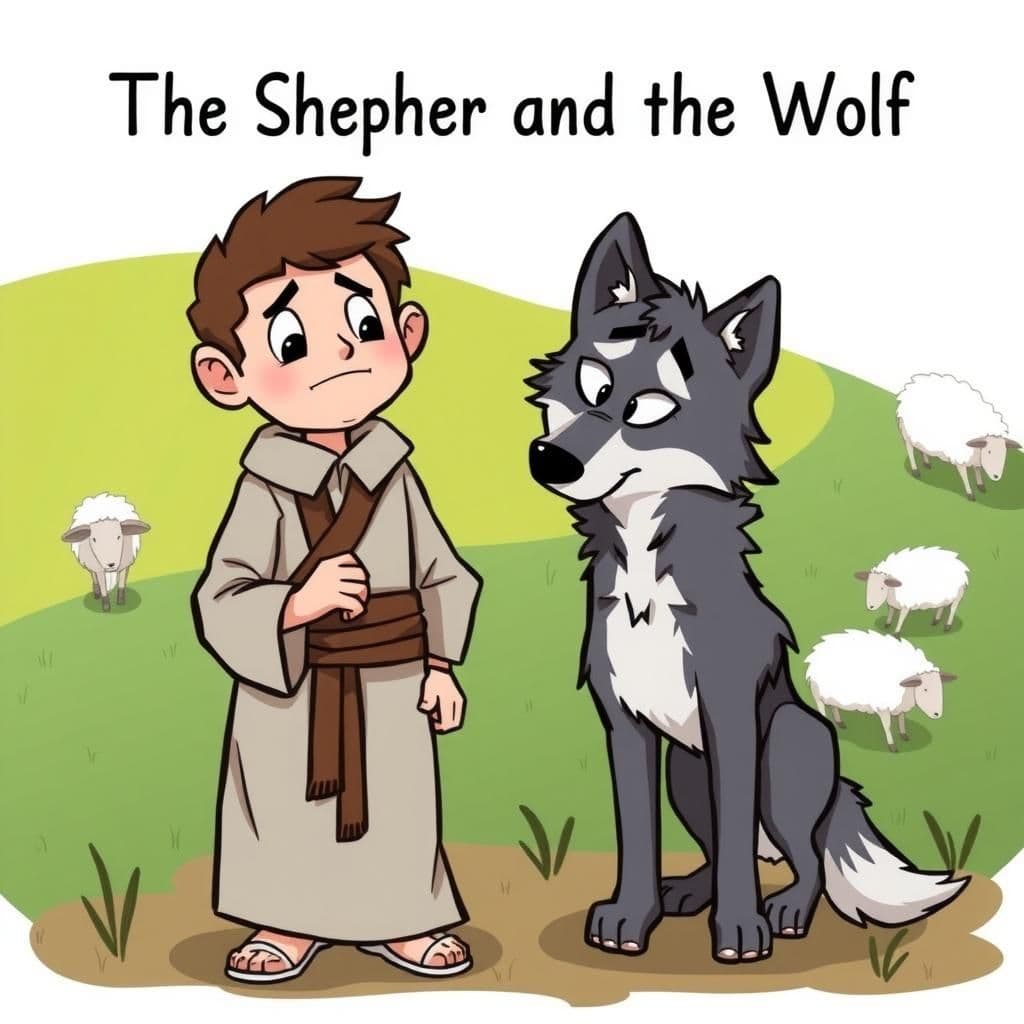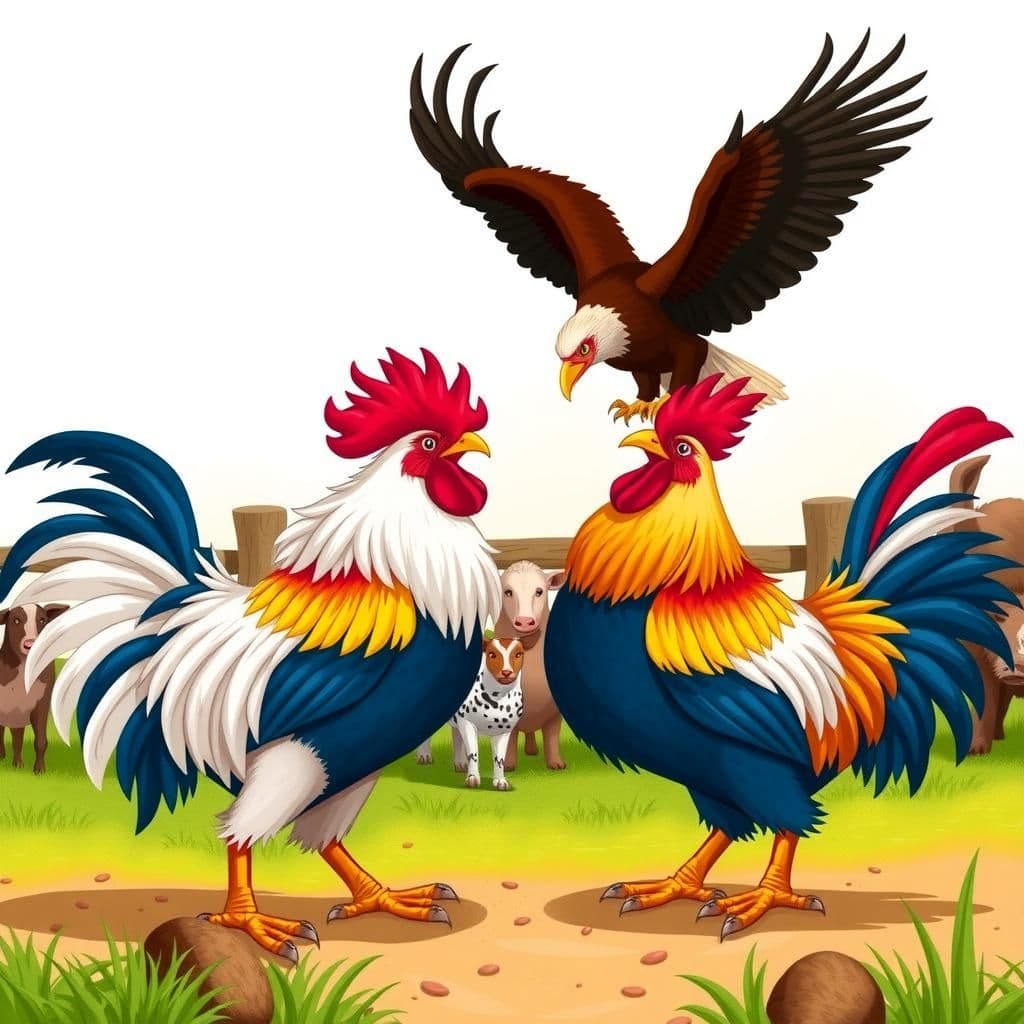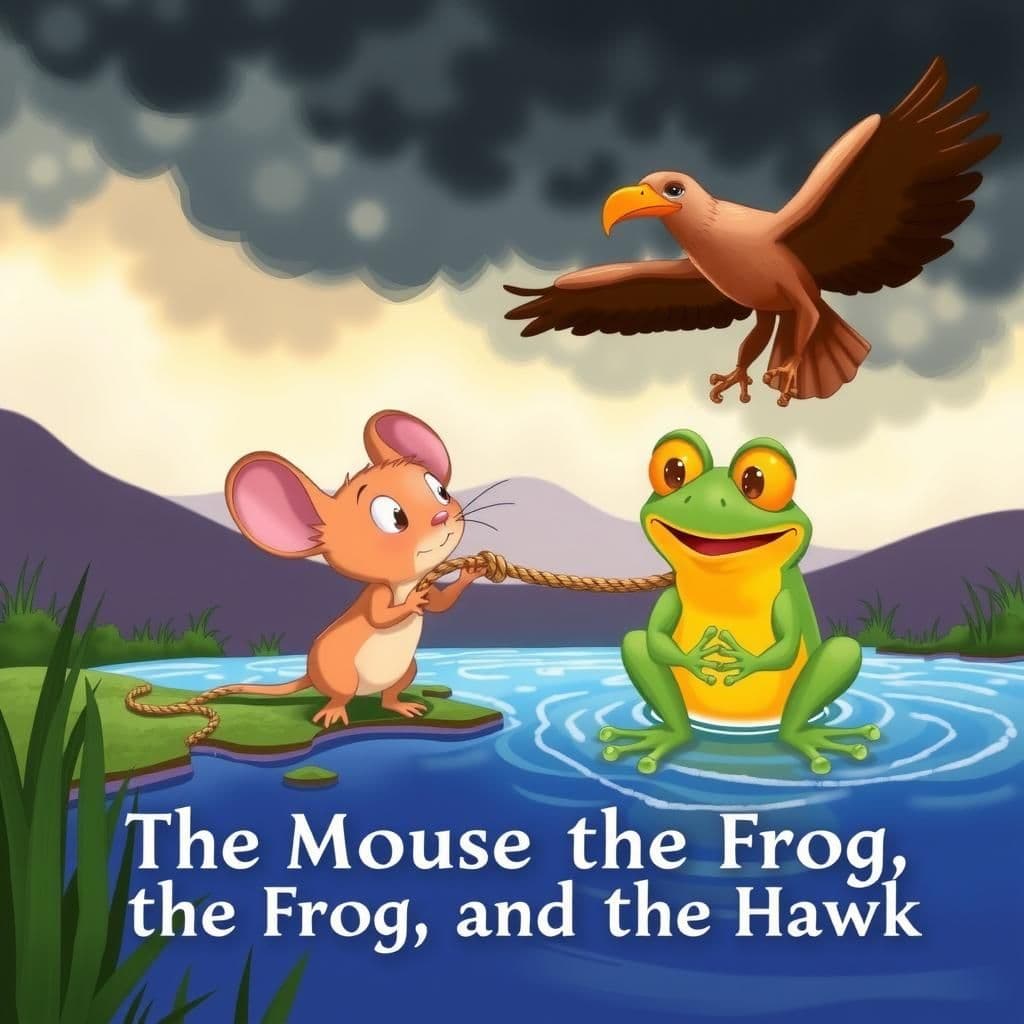The Shepherd and the Wolf
In this thought-provoking moral story, a shepherd raises a wolf cub and teaches it to steal lambs from nearby flocks. As the wolf becomes adept at thievery, it warns the shepherd that his own teachings may lead to his downfall, highlighting the unexpected consequences of one's actions. This tale is a powerful addition to short story collections with moral lessons, showcasing the importance of being mindful of the values we instill.

Reveal Moral
"The moral of the story is that teaching someone to do wrong can ultimately lead to one's own downfall."
You May Also Like

The Fighting Cocks and the Eagle
In this captivating moral story, two game cocks battle for dominance in a farmyard, with one ultimately emerging victorious. However, the conqueror's pride leads to its capture by an eagle, allowing the defeated cock to take over without challenge. This wisdom-packed tale illustrates that pride often precedes one's downfall, serving as a concise moral lesson in humility.

The Mouse the Frog and the Hawk
In this short story with moral, a Mouse befriends a mischievous Frog who binds their feet together and drags the Mouse into the water, leading to its drowning. The Frog, reveling in the water, meets a grim fate when a Hawk captures both the dead Mouse and itself. This humorous story illustrates that those who cause harm to others may ultimately suffer consequences themselves, making it a fitting tale for students seeking moral lessons.

Two Kings
In the short moral story "Two Kings," the King of Madagao, embroiled in a dispute with the King of Bornegascar, demands the recall of his rival's Minister. Faced with an enraged refusal and the threat to withdraw the Minister instead, the terrified King of Madagao hastily complies, only to comically trip and fall, humorously violating the Third Commandment. This tale, rooted in folklore, serves as a reminder of the consequences of pride and hasty decisions in well-known moral stories.